Rubia cordifolia – 茜草 qian cao,manjistha,Rubiaceae Radix Et Rhizoma,manjistha root,manjistha rubia cordifolia,rubia cordifolia root,qian cao herb,Rubia cordifolia (attached: rubia cordifolia vine)
[Medicinal use] This product is the root and rhizome of the rubiaceae plant rubia cordifolia.
[Nature and flavor and meridians] Bitter, cold. Enters the liver meridian.
[Effects] Cools blood and stops bleeding, promotes blood circulation and removes blood stasis.
[Clinical application] 1. Used for various bleeding diseases.
Rubia cordifolia cools blood and stops bleeding, and is mainly used for various bleeding diseases caused by blood heat, and is often used in combination with gardenia, rehmannia, and dandelion.
2. Used for women with amenorrhea, irregular menstruation, postpartum lochia retention, falls and injuries, joint pain, and initial carbuncle.
Rubia cordifolia can promote blood circulation and remove blood stasis when used raw, and can be used for all diseases with blood stasis. Therefore, it is widely used and is often used in combination with peach kernel, safflower, angelica, red peony root, and moutan bark.
[Prescription name] Rubia charcoal (fried until black outside and slightly charred inside, used to stop bleeding), raw rubia, rubia root (used raw, has the effect of promoting blood circulation)
[ਆਮ ਖੁਰਾਕ ਅਤੇ ਵਰਤੋਂ] ਇੱਕ ਤੋਂ ਤਿੰਨ ਕਿਆਨ, ਡੀਕੋਕਟ ਅਤੇ ਲਿਆ ਗਿਆ।
[Additional medicine] Rubia vine: also known as Guoshanlong, which is the stem and vine of rubia. It has the effect of promoting blood circulation and reducing swelling. It can treat injuries caused by falls, sores, carbuncles, and swelling. It can be taken orally or fresh grass can be mashed and applied externally. The general dosage is three to five qian, decocted and taken. Appropriate amount for external use.
[Comment] When this product is used clinically, it is generally believed that it can promote blood circulation when used raw, and stop bleeding when fried charcoal. But now some people believe that it also has the effect of stopping bleeding when used raw.
This product is the dried root and rhizome of Rubia cordifolia L, a plant of the Rubiaceae family. It is excavated in spring and autumn, the mud and sand are removed, and it is dried.
[ਵਿਸ਼ੇਸ਼ਤਾਵਾਂ]
The rhizome of this product is nodular, with clusters of roots of varying thickness. The root is cylindrical, slightly curved, 10~25cm long, 0.2~1cm in diameter; the surface is reddish brown or dark brown, with fine longitudinal wrinkles and a few fine root marks; the peeling part of the cortex is yellow-red. It is brittle and easy to break, with a flat cross section, narrow cortex, purple-red, wide xylem, light yellow-red, and many tracheal pores. It has a slight odor and tastes slightly bitter. It stings the tongue after long chewing.
[ਪਛਾਣ]
(1) Cross-section of the root of this product: 6~12 rows of cork cells, containing brown substances. Some of the thin-walled cells in the inner layer of the cork contain reddish brown particles. The phloem cells are relatively small. The cambium is not very obvious. The xylem occupies the main part of the root, which is completely lignified and has unclear rays. The thin-walled cells contain bundles of calcium oxalate needles.
(2) Take 0.2g of the powder of this product, add 5ml of ether, shake for several minutes, filter, add 1ml of sodium hydroxide test solution to the filtrate, shake, and let it stand to separate. The water layer is red; the ether layer is colorless. When observed under ultraviolet light (365nm), it shows sky blue fluorescence.
(3) Take 0.5g of the powder of this product, add 10ml of methanol, ultrasonically treat for 30 minutes, filter, and concentrate the filtrate to 1ml as the test solution. Take 0.5q of madder reference medicinal material and prepare the reference medicinal material solution in the same way. Take the madder reference substance and add methanol to prepare a solution containing 2.5mg per 1ml as the reference substance solution. According to the thin layer chromatography method (General Rule 0502), 5 μl of each of the above three solutions are taken and spotted on the same tridacna G thin layer plate, and petroleum ether (60~90℃)-acetone (4:1) is used as the developing agent. Develop, take out, dry, and examine under ultraviolet light (365nm). In the chromatogram of the test sample, fluorescent spots of the same color appear at the corresponding positions of the chromatogram of the reference medicinal material and the chromatogram of the reference sample.
[ਜਾਂਚ]
The moisture content shall not exceed 12.0% (General Rule 0832 Method 2).
Total ash content shall not exceed 15.0% (General Rule 2302).
Acid-insoluble ash content shall not exceed 5.0% (General Rule 2302).
[ਐਬਸਟਰੈਕਟ]
The hot leaching method under the item is determined, and ethanol is used as the solvent according to the alcohol-soluble extract determination method (General Rule 2201), and it shall not be less than 9.0%.
[ਸਮੱਗਰੀ ਨਿਰਧਾਰਨ]
Determine according to the high performance liquid chromatography method (General Rule 0512). Chromatographic conditions and system suitability test Octadecylsilane bonded silica gel was used as filler; methanol-acetonitrile-0.2% phosphoric acid solution (25:50:25) was used as mobile phase; the detection wavelength was 250nm. The theoretical plate number calculated based on the peaks of rubiacein and hydroxyrubiacein should not be less than 4000.
Preparation of reference solution Take appropriate amount of rubiacein reference substance and hydroxyrubiacein reference substance, weigh accurately, add methanol to prepare solutions containing 0.1mg rubiacein and 40ug hydroxyrubiacein per 1m|, respectively.
Preparation of test solution Take about 0.5g of the powder of this product (passed through No. 2 sieve), weigh accurately, place in a stoppered conical flask, accurately add 100ml of methanol, seal, weigh, place overnight, ultrasonically treat (power 250W, frequency 40kHz) for 30 minutes, cool, weigh again, make up the lost weight with methanol, shake well, filter, accurately measure 50ml of the filtrate, evaporate to dryness, add 20ml of methanol-25% hydrochloric acid (4:1) mixed solution to dissolve the residue, heat and hydrolyze in a water bath for 30 minutes, cool immediately, add 3ml of triethylamine, mix well, transfer to a 25ml volumetric flask, add methanol to the scale, shake well, filter, take the filtrate, and get it.
Determination method: accurately aspirate 10u of the reference solution and 20u of the test solution, inject into the liquid chromatograph, and determine, and get it.
This product, calculated on the basis of dry product, contains not less than 0.40% of macroalpinin (C17H16O4) and not less than 0.10% of hydroxyalpinin (C14HgOr)
ਡੀਕੋਸ਼ਨ ਦੇ ਟੁਕੜੇ
[ਪ੍ਰਕਿਰਿਆ]
Madder removes impurities, washes, moistens thoroughly, cuts into thick slices or sections, and dries.
[ਵਿਸ਼ੇਸ਼ਤਾਵਾਂ]
This product is irregular thick slices or sections. The root is cylindrical, with reddish brown or dark brown outer skin and fine longitudinal lines: the peeling part of the skin is yellow-red. The cut surface of the skin is narrow, purple-red, the wood is broad, light yellow-red, and has many duct holes. The smell is slight, the taste is slightly bitter, and the tongue is stinging after long chewing.
[(Content determination]
Same as the medicinal material, contains not less than 0.20% of macroalpinin (C17H16O4) and not less than 0.080% of hydroxyalpinin (C14Hg05).
[Identification 】【Inspection】【Extract】
ਚਿਕਿਤਸਕ ਸਮੱਗਰੀ ਦੇ ਸਮਾਨ.
Rubia charcoal Take rubia slices or segments and stir-fry them according to the charcoal method (General Rule 0213) until the surface is burnt black.
【ਵਿਸ਼ੇਸ਼ਤਾ】
This product is shaped like rubia slices or segments, with a dark brown surface and a tan interior. Slight odor, bitter and astringent taste.
【ਪਛਾਣ】
Take 0.4g of this product powder, add 5ml of ether, shake for several minutes, filter, add 1ml of sodium hydroxide test solution to the filtrate, shake, and let it stand to separate. The water layer is red, and the ether layer is colorless. Observe under ultraviolet light (365nm), and it shows sky blue fluorescence.
【Inspection】
Water content The same medicinal material, not more than 8.0%
[ਐਬਸਟਰੈਕਟ]
The same medicinal material, not less than 10.0%.
[ਕੁਦਰਤ ਅਤੇ ਸੁਆਦ ਅਤੇ ਮੈਰੀਡੀਅਨ]
Bitter, cold. Enter the liver meridian.
[ਫੰਕਸ਼ਨ ਅਤੇ ਸੰਕੇਤ]
Cooling blood, removing blood stasis, stopping bleeding, and dredge menstruation. Used for vomiting blood, blood, metrorrhagia, traumatic bleeding, blocking amenorrhea, joint pain, swelling and pain from falls. [Usage and dosage]
6~10 ਗ੍ਰਾਮ।
[ਸਟੋਰੇਜ]
Put in a dry place.
Where is the main production area of Rubia cordifolia?
It is mainly produced in Shaanxi, Hebei, Shandong, Henan, and Anhui.
Where is the main medicinal part of rubia?
Medicinal part of rubia:
This product is the dried root and rhizome of Rubia cordifolia L., a plant of the Rubiaceae family. Dig in spring and autumn, remove mud and sand, and dry. Characteristics of the medicinal part of rubia:
The rhizome of this product is nodular, with clusters of roots of varying thickness. The root is cylindrical, slightly curved, 10~25 long cm, 0.2~1cm in diameter; the surface is reddish brown or dark brown, with fine longitudinal wrinkles and a few fine root marks; the peeling part is yellow-red. It is brittle and easy to break, with a flat cross section, narrow cortex, purple-red, wide wood, light yellow-red, and many duct holes. It has a faint smell and a slightly bitter taste. It stings the tongue when chewed for a long time.
How are madder recorded in ancient books?
“Ben Jing”: “It is used to treat cold, dampness, rheumatism, jaundice, and tonify the middle.
“Ming Yi Bie Lu”: “It is used to stop bleeding, internal bleeding, bladder insufficiency, stumbling, and poison. , long-term use It can benefit the essence and qi, and lighten the body.
“Compendium of Materia Medica”: “It can treat six extremes that hurt the heart and lungs, vomit blood, and bleed.
“Rihuazi Materia Medica”: “It can stop nosebleed, leucorrhea, postpartum blood loss, milk knots, continuous menstruation, intestinal wind hemorrhoids, fistulas, and pus discharge; it can treat sores, furuncles, spermatorrhea, hematuria, and blood stasis caused by injuries.
“Compendium of Materia Medica Volume 18”: “It can clear the meridians, treat joint pain, and activate blood circulation.
“Yaojian”: “It can activate blood circulation, treat falls, carbuncle poison, scars, amenorrhea, blood in stool, metrorrhagia, leucorrhea, hemorrhoids, rheumatism, ascites, jaundice, and insect bites.
ਪ੍ਰਭਾਵ
Rubin has the effects of cooling blood, removing blood stasis, stopping bleeding, and dredging menstruation.
What are the main effects and clinical applications of rubia?
Rubin is used for vomiting blood, epistaxis, metrorrhagia, traumatic bleeding, blood stasis amenorrhea, joint pain, and swelling and pain caused by falls.
ਖੂਨ ਵਹਿਣਾ
. Treat vomiting blood, epistaxis, metrorrhagia and all other symptoms of continuous bleeding caused by blood heat, and can be used together with large, small, and cypress leaves.
· Treat traumatic bleeding, and can be used alone and ground into powder.
Blood stasis syndrome
· Treat blood stasis and amenorrhea, and can be decocted with wine alone, or used together with peach kernel, safflower, and angelica.
· Treat rheumatic pain, swelling and pain caused by falls, and can be used alone, or used together with other anti-rheumatic drugs, blood-activating and healing drugs.
What other effects does madder have?
In my country’s traditional food culture, some Chinese medicinal materials are often widely consumed as food ingredients among the people, that is, substances that are both food and Chinese medicinal materials according to tradition (i.e. edible drug substances). According to the documents issued by the National Health Commission and the State Administration for Market Regulation, madder can be used as both medicine and food within a limited range of use and dosage.
Commonly used medicinal recipes for madder are as follows:
Food stagnation and qi stagnation syndrome
Used for vomiting, hiccups, cold pain in the abdomen, diarrhea, etc. caused by food stagnation, obstruction of the spleen and stomach qi, and dysfunction of ascending and descending. 6g of sandalwood, 9g of costusroot, 6g of cloves, 15g of amomum, 60g of madder, 30g of red yeast rice. Grind the above medicines into fine powder, make pills with refined honey, each pill is about 10g, and soak in 500mL of white wine. Drink in moderation.
ਨੋਟ: ਚੀਨੀ ਚਿਕਿਤਸਕ ਸਮੱਗਰੀ ਦੀ ਵਰਤੋਂ ਸਿੰਡਰੋਮ ਵਿਭਿੰਨਤਾ ਅਤੇ ਇਲਾਜ 'ਤੇ ਅਧਾਰਤ ਹੋਣੀ ਚਾਹੀਦੀ ਹੈ, ਅਤੇ ਪੇਸ਼ੇਵਰ ਚੀਨੀ ਦਵਾਈ ਪ੍ਰੈਕਟੀਸ਼ਨਰਾਂ ਦੀ ਅਗਵਾਈ ਹੇਠ ਵਰਤੀ ਜਾਣੀ ਚਾਹੀਦੀ ਹੈ। ਉਨ੍ਹਾਂ ਦੀ ਮਰਜ਼ੀ ਨਾਲ ਵਰਤੋਂ ਨਾ ਕਰੋ, ਅਤੇ ਚੀਨੀ ਦਵਾਈਆਂ ਦੇ ਨੁਸਖੇ ਅਤੇ ਇਸ਼ਤਿਹਾਰਾਂ ਨੂੰ ਆਪਣੀ ਮਰਜ਼ੀ ਨਾਲ ਨਾ ਸੁਣੋ।
What are the compound preparations containing madder?
ਸ਼ਿਹੁਈਸਾਨ
Cools blood and stops bleeding. It is mainly used for upper bleeding syndrome caused by blood heat. Vomiting blood, vomiting blood, coughing up blood, epistaxis, etc., the blood is bright red, the onset is sudden and violent, the tongue is red and the pulse is rapid.
Biyuan Pills
Dispel wind and promote lung function, clear heat and detoxify, open the orifices and relieve pain. Used for nasal congestion, sinusitis, poor ventilation, runny yellow and turbid nose, poor sense of smell, headache, and pain in the brow bone.
Modern research progress on madder
This product has multiple pharmacological effects such as hemostasis, anticoagulation, anti-inflammatory, antioxidant and anti-tumor.
· Effect on the blood system: It has a significant effect on promoting blood coagulation, which is manifested by shortening the recalcification time, prothrombin time and white clay partial thromboplastin time.
Effect on the immune system: The crude extract of madder has the effect of increasing white blood cells. .
Effect on the respiratory system: The decoction has a significant antitussive and expectorant effect.
Antibacterial effect: The water extract has a certain inhibitory effect on Staphylococcus aureus, Streptococcus pneumoniae, influenza bacillus and some skin fungi. .
Antipyretic and analgesic effect: The alcohol extract of madder significantly increases the pain threshold of mice and reduces the body temperature of fever rabbits caused by typhoid vaccine.
ਵਰਤੋਂ ਵਿਧੀ
Madder is generally used as madder slices and decocted. Please follow the doctor’s instructions for specific medication.
How to use madder correctly?
When madder decoction is taken orally, the common dosage is 6~109.
After different processing methods, raw madder, wine madder, fried madder and madder carbon can be produced. It is suitable for charcoal to stop bleeding, and raw or wine fried madder to promote blood circulation and menstruation. Different processing methods have different effects, but the medication method is the same. Please follow the doctor’s instructions for specific medication.
Madder is generally used in decoctions, decoctions are taken, and powders or pills can also be made for consumption. However, the use of Chinese medicinal materials must be differentiated and treated, and should be used under the guidance of professional Chinese medicine practitioners. It should not be used at will, and it should not be used at will, let alone listen to Chinese medicine prescriptions and advertisements.
How to process madder?
Madder: Take the original medicinal material, remove the residual stems and impurities, wash, soften, cut into thick slices or segments, and dry. Sift out the debris. Rubia charcoal: Take rubia slices or segments, put them in a frying container, heat them with high heat, fry until the surface is burnt black, spray a little water, extinguish the sparks, take them out, and let them cool.
What drugs should be used with rubia with special attention?
ਚੀਨੀ ਦਵਾਈ ਅਤੇ ਚੀਨੀ ਅਤੇ ਪੱਛਮੀ ਦਵਾਈ ਦੀ ਸੰਯੁਕਤ ਵਰਤੋਂ ਲਈ ਸਿੰਡਰੋਮ ਵਿਭਿੰਨਤਾ ਅਤੇ ਕਲੀਨਿਕਲ ਵਿਅਕਤੀਗਤ ਇਲਾਜ ਦੀ ਲੋੜ ਹੁੰਦੀ ਹੈ।
If you are using other drugs, please consult a doctor before taking them, and inform your doctor of all your diagnosed diseases and treatment plans you are receiving.
ਦਵਾਈ ਦੀਆਂ ਹਦਾਇਤਾਂ
Rubia is bitter and cold, so people with spleen and stomach deficiency and coldness and no stasis should take it with caution
What precautions should be taken when using rubia?
· Pregnant women should use it with caution.
During the medication period, it is necessary to avoid eating cold, raw and cold foods, spicy and greasy foods, and avoid smoking and drinking. .
· This product has a slight smell and a slightly bitter taste. It will sting the tongue after long chewing. The cut face is yellow and red, which is better. Use it raw or stir-fried for charcoal.
· Children: Children should take the medicine under the guidance of a doctor and under the supervision of an adult.
· Please keep the medicinal materials properly and do not give them to others.
· Avoid using copper or iron utensils to decoct medicine.
How to identify and use madder?
Madder is bitter and cold in nature. It belongs to the liver meridian. It has the effects of cooling blood, stopping bleeding, removing blood stasis, and dredging menstruation.
Raw madder tends to promote blood circulation and remove blood stasis, cool blood, and stop bleeding. It is used for various bleeding syndromes caused by qi stagnation and blood stasis, menstrual occlusion, postpartum lochia, falls and injuries, redness, swelling, stasis, pain, rheumatism, and blood heat. For example, the madder root powder for treating epistaxis and depression
Madder charcoal, the coldness is weakened, the nature becomes astringent, and the hemostatic effect is enhanced, which is used for various bleeding syndromes. For example, the ten-ash powder for treating multiple bleeding.
ਮਰੀਜ਼ਾਂ ਦੁਆਰਾ ਅਕਸਰ ਪੁੱਛੇ ਜਾਂਦੇ ਸਵਾਲ
Is madder cool or hot?
·Madder is cold. Madder is a hemostatic drug, which is the dried root and rhizome of the madder plant Rubia cordifolia L. of the Rubiaceae family. ·Madder herb is bitter and cold in nature. It belongs to the liver meridian. This product mainly contains naphthoquinone ingredients: madder, madder naphthoic acid, madder diester, etc., anthraquinone ingredients: hydroxy madder, madder, madder yellow, etc. It also contains terpenes, polysaccharides, cyclic peptide compounds, etc. This product has the effects of cooling blood, removing blood stasis, stopping bleeding, and regulating menstruation. It is used for vomiting blood, blood, metrorrhagia, traumatic bleeding, blocking menstruation, joint pain, and swelling and pain caused by falls. .
Can pregnant women take madder?
Pregnant women should not use madder. Although madder is a hemostatic drug, it has a bitter and cold nature. It has the effects of cooling blood, activating blood circulation, and dysmenorrhea, and is used to block menstruation. Pregnant women using madder can easily cause adverse reactions such as fetal movement disorder and even miscarriage, so pregnant women should not use madder
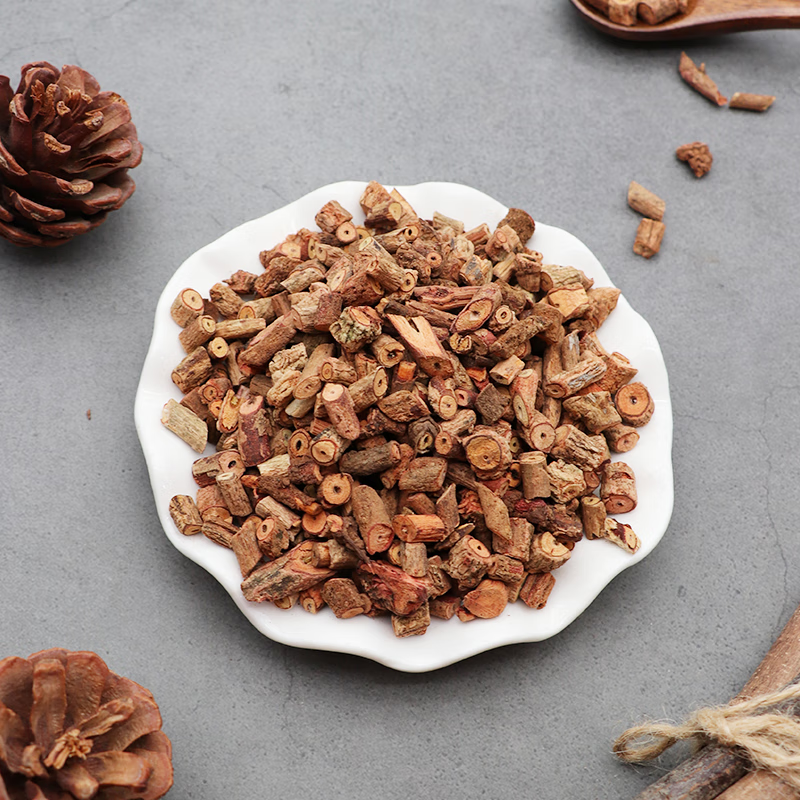
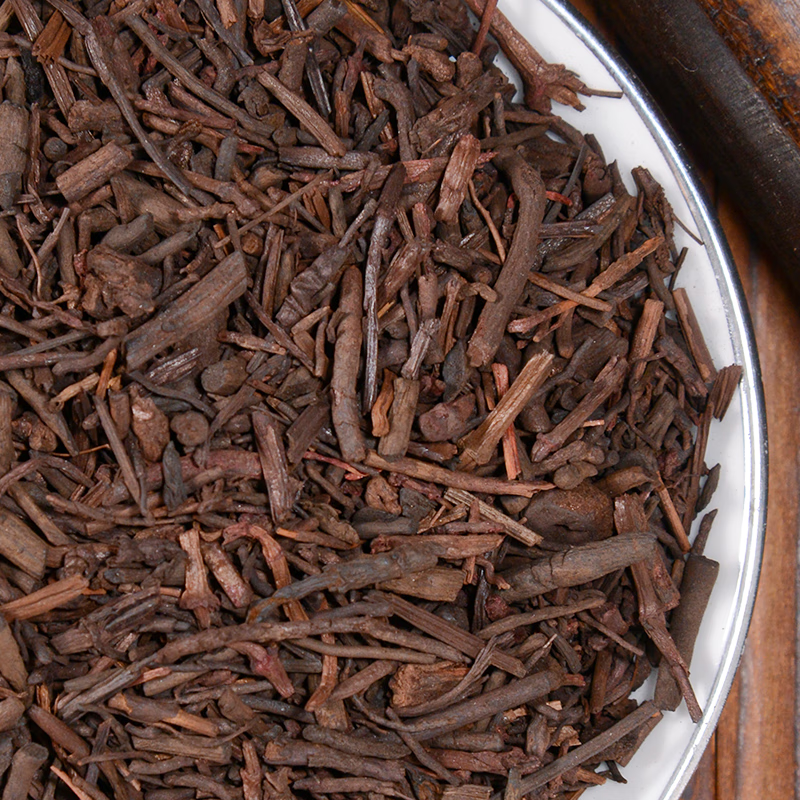
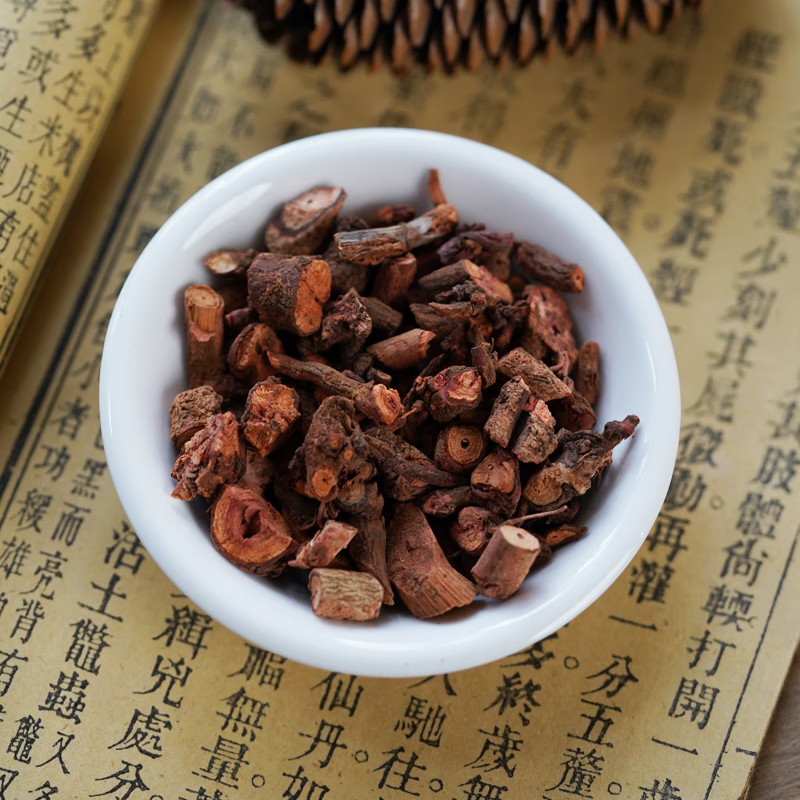
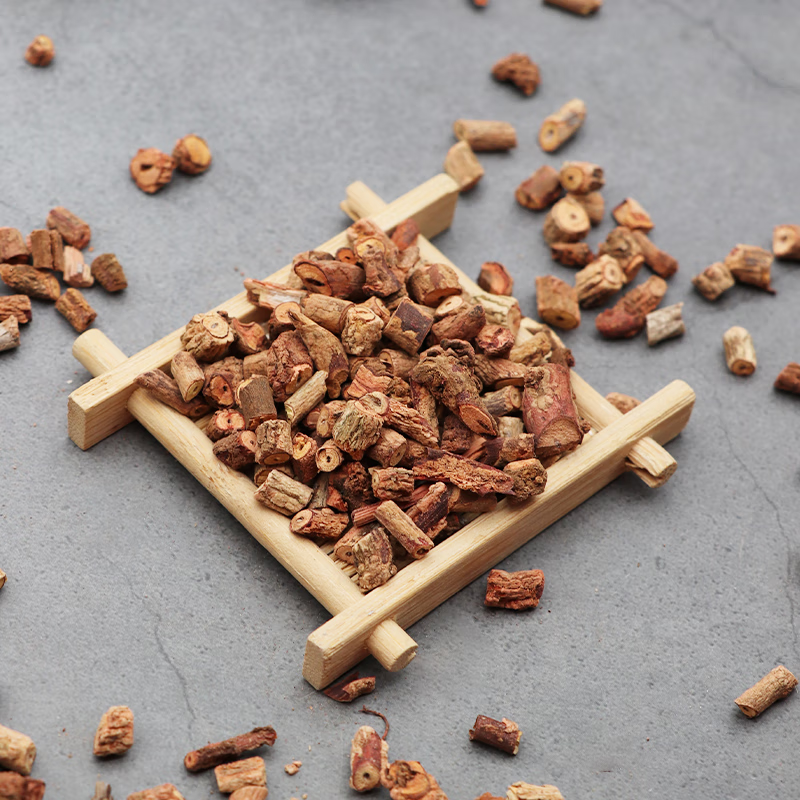
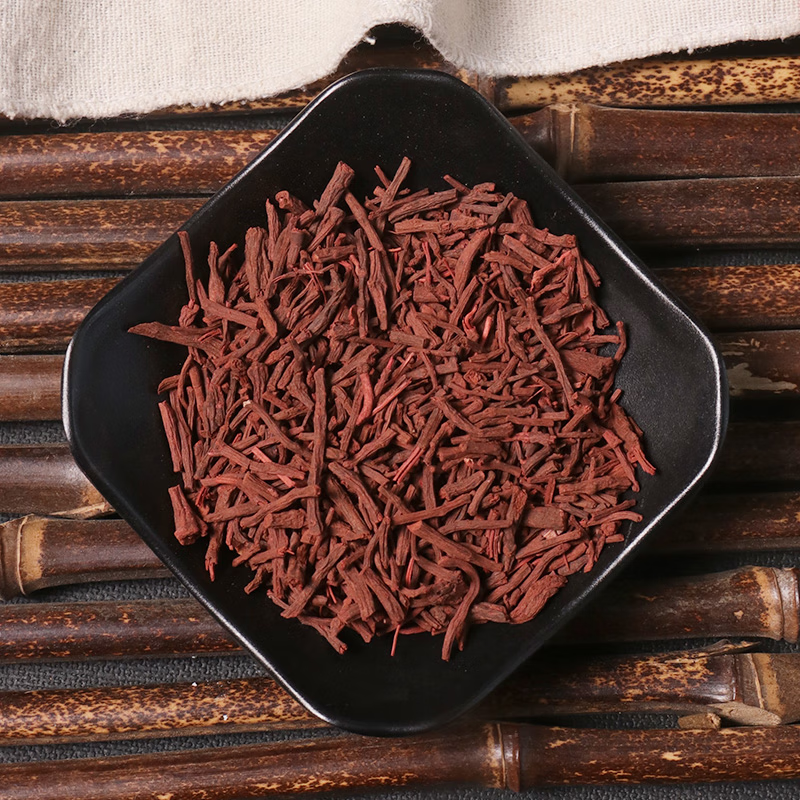




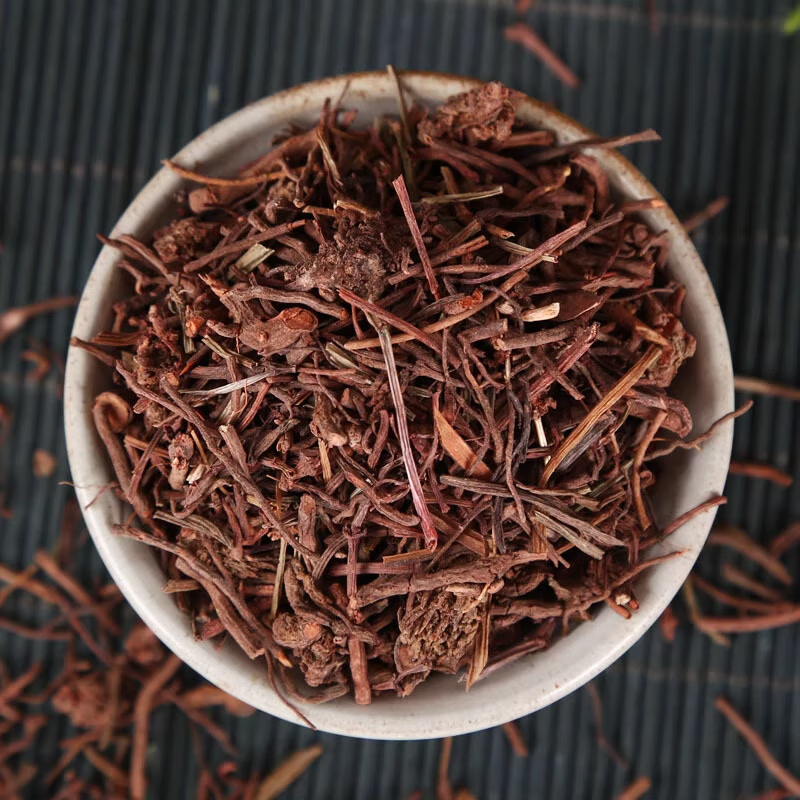
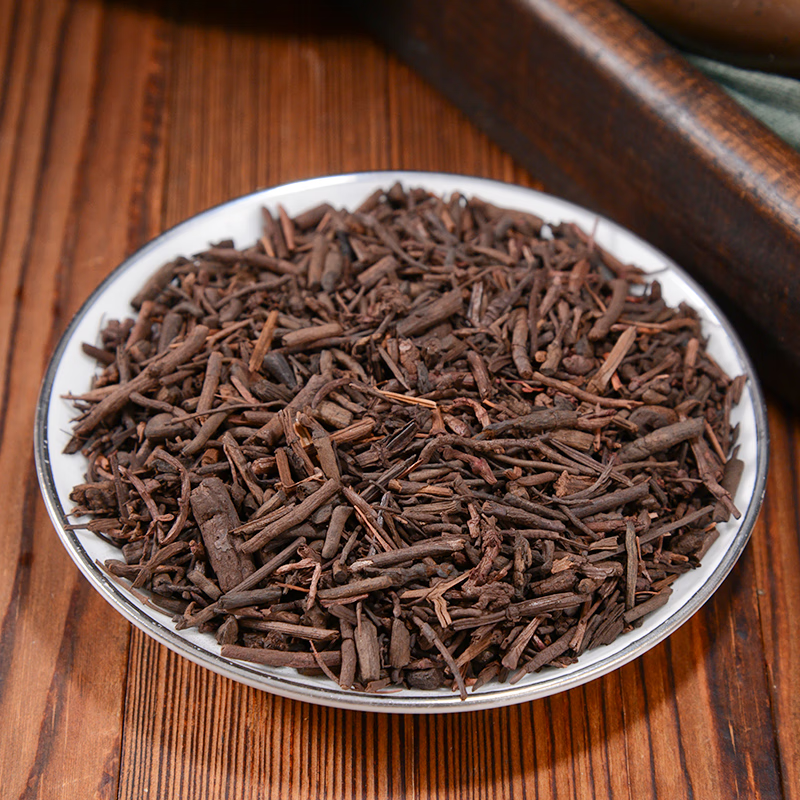
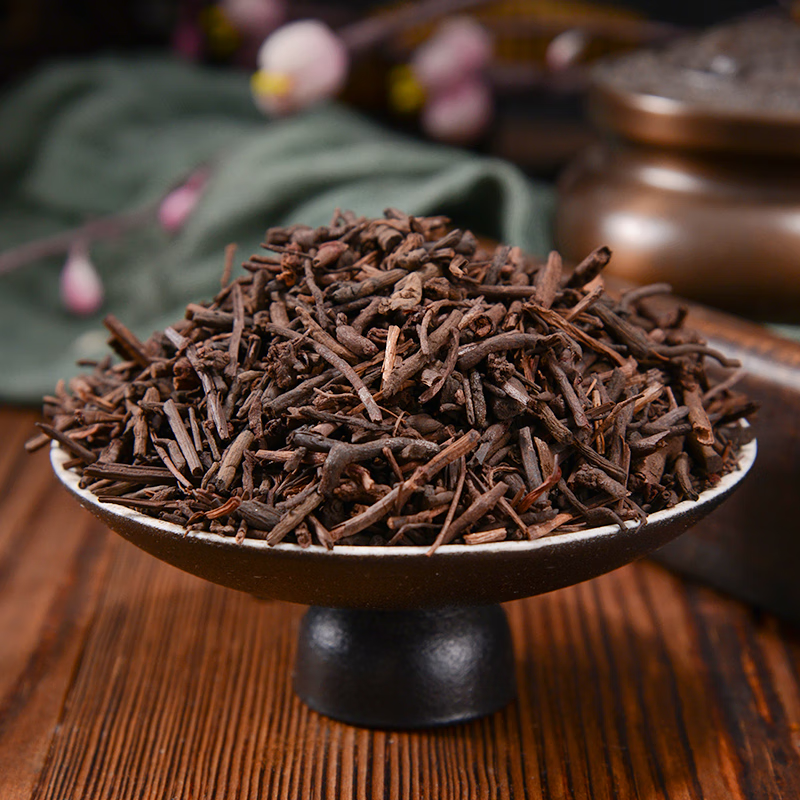


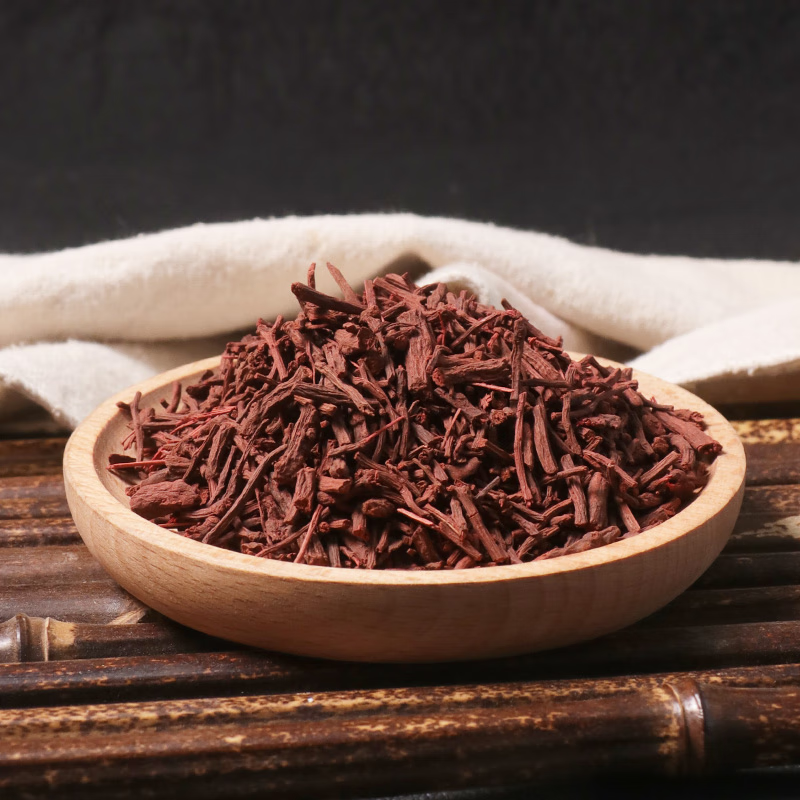
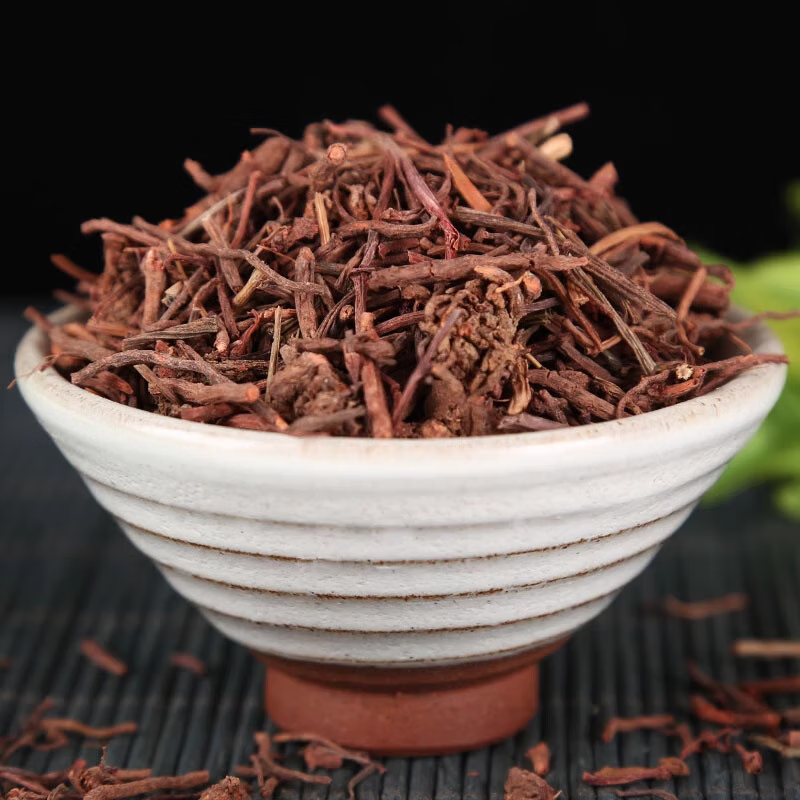
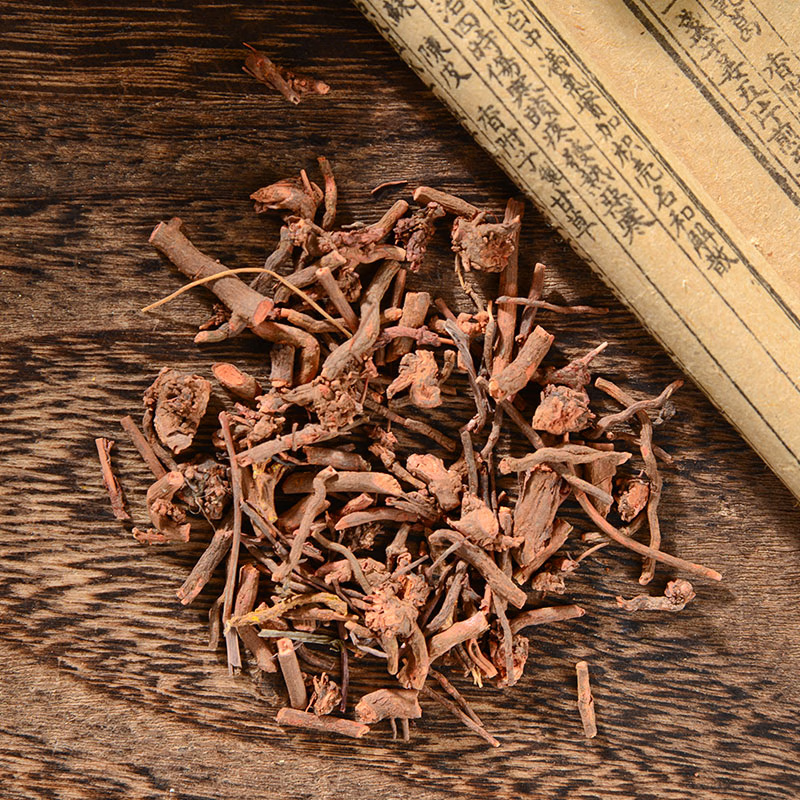
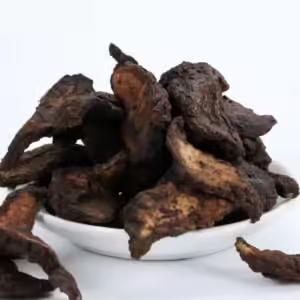

ਸਮੀਖਿਆਵਾਂ
ਅਜੇ ਤੱਕ ਕੋਈ ਸਮੀਖਿਆਵਾਂ ਨਹੀਂ ਹਨ।